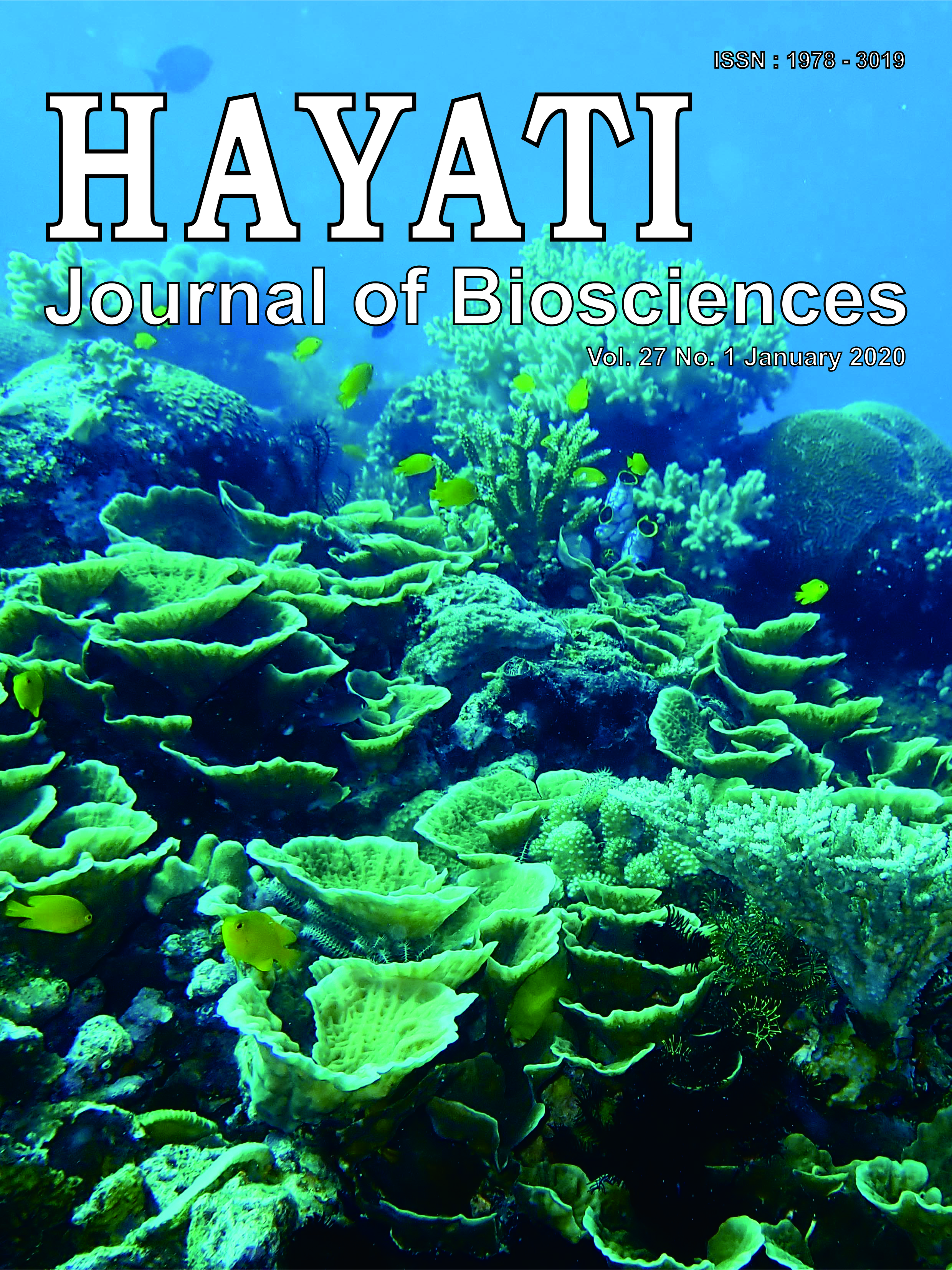Ecological Vulnerability of Coral Reef Ecosystem in Wakatobi National Park During Indian Ocean Dipole Event
Abstract
This research examines coral reefs vulnerability which threatening its existences and functions by climate change. The ecological vulnerability in Wakatobi (Wangi-wangi, Kaledupa, Tomia, and Binongko) was assessed during Indian Ocean Dipole (IOD) event in 2016. Climate exposure was determined using sea surface temperature, chlorophyll-a concentration, and wind speed magnitude; sensitivity was determined using coral susceptibility, fish susceptibility, and macroalgae primary productivity rate; then adaptive capacity was developed by hard coral cover, coral size distribution, coral richness, fish biomass, herbivore diversity, and herbivore grazing relative to algal production. The values of Exposure, Sensitivity, and Adaptive capacity in Wakatobi were 0.93±0.02, 0.42±0.18, and 0.44±0.10, respectively. Site specific vulnerability scores ranged from 0.52 to 1.60 (mean 0.92±0.26). Binongko was the least vulnerable than other islands. Tomia was observed as the least adaptive capacity and Wangi-wangi was the most bleaching incidents. These results could help coral reefs monitoring priority during the event and then when the event is gone by focusing on the marked islands and sites. Sites that were observed as more vulnerable is urgently need a management strategy to overcome the vulnerability status in the future, such as increasing site adaptability.
Downloads
HAYATI J Biosci is an open access journal and the article's license is CC-BY-NC. This license lets others distribute, remix, tweak, and build upon author's work, as long as they credit the original creation. Authors retain copyright and grant the journal/publisher non exclusive publishing rights with the work simultaneously licensed under a https://creativecommons.org/

























.png) IPB University
IPB University Department of Biology
Department of Biology The Indonesian Biological Society
The Indonesian Biological Society 

